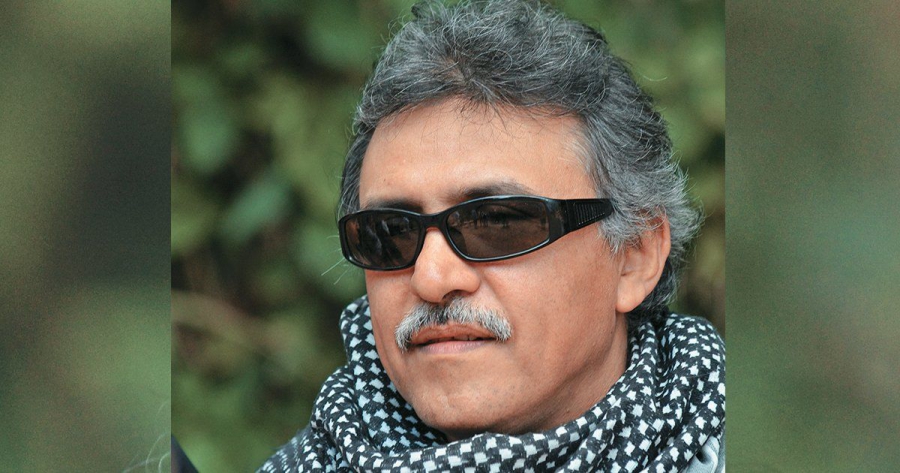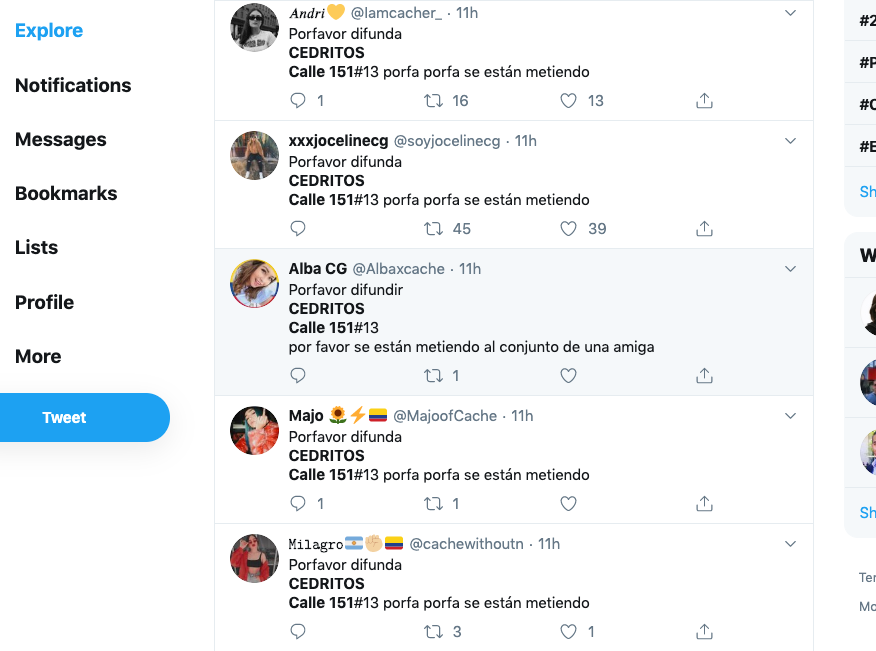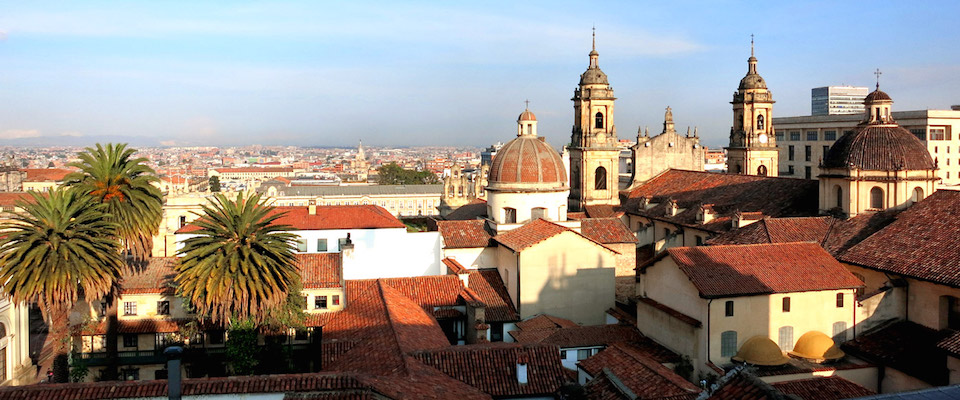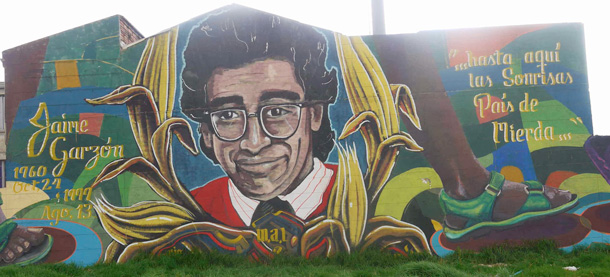
 On Trial is a Bogotá Post feature in which we put someone or something from the Colombian news ‘on trial’, from the perspectives of both their fans and their critics.
On Trial is a Bogotá Post feature in which we put someone or something from the Colombian news ‘on trial’, from the perspectives of both their fans and their critics.
 Our first contender is Enrique Peñalosa: the man who is leading the polls in the mayoral race, and the only candidate to have served a full term as Bogotá mayor. Jake Dixon investigates…
Our first contender is Enrique Peñalosa: the man who is leading the polls in the mayoral race, and the only candidate to have served a full term as Bogotá mayor. Jake Dixon investigates…
For the Prosecution |
For the Defence |
| Ladies and gentleman of the jury, let us start with what we know: Peñalosa’s much lauded efforts to regenerate public spaces came at a cost. When he “reclaimed” the El Cartucho neighbourhood, 700 people were displaced, some of them violently, from the centre of Bogotá. For a country that is a world-leader in internal displacement, and for a politician who claims that the real goal of government should be to help people “live better”, that should be enough to permanently tarnish his legacy. I see no reason to praise a man who left his successor with a budget that included only a little more than a quarter of the money necessary to clean up the mess he left in that part of the city.
Let the record show that budget hole wasn’t the only evidence of Peñalosa’s neglect of the most vulnerable: inequality increased by more than a third while he was mayor, and indigence more than doubled. Nor was it the only time he left the city budget in dire straits: while the Transmilenio was a great accomplishment at the time, the TM contract, which entitled Bogotá to only 5% of the revenue from the system, is a disgrace. I would also like to submit as evidence the scandal of the losas, a gift to headline writers, but a financial millstone around the neck of the city. The sections of pavement chosen for the Transmilenio started to crack after just three years – rather than a promised 20 – and replacing them has already cost the city almost COP$80,000 million (about USD$27 million), costs that continue to this day, when the city is just scraping the money together to build the metro. The issue was a serious enough scandal to get Peñalosa’s director of infrastructure, Andrés Camargo, jailed for seven years. And we know about the bolardos – the short, pillar-like concrete structures that dot Bogotá sidewalks – which were put in place unilaterally, without proper consultation, and for which he overpaid by at least COP$75 million. I hope the court would agree that perhaps the most egregious issue is Peñalosa’s willingness to jump from political party to political party. He claims to be more left-wing than Polo, the most powerful leftist party in Colombia, but he hitches his wagon to any conservative who will have him, from Uribe in 2011, to Vice President Germán Vargas and Conservative Party leader Martha Lucía Ramirez this year. How can we trust someone who so easily jumps into bed with anyone who might get them some votes, regardless of their political beliefs? And while the defendant likes to bring up the contracting carrousel, in which the left-wing mayor Samuel Moreno gave out government contracts in exchange for bribes, it turns out he wasn’t as detached from it all as he would like us to believe. Zoraida Rozo, the wife of the ex-governor of Cundinamarca, Álvaro Cruz (arrested because of his alleged involvement in the carrousel), was a high-ranking member of several of Peñalosa’s campaigns, and also created a company which profited richly from the carrousel. It’s not as if Peñalosa could claim ignorance – in 2011, Green Party senator John Sudarsky withdrew his support from Peñalosa’s mayoral campaign, in protest of his insistence on backing Cruz as governor of Cundinamarca. Finally, let me draw your attention to two of Peñalosa’s other dealings. It has come out recently that some of Peñalosa’s lucrative conferences on urban development – bringing him between USD$10,000 and $50,000 a time – were being paid for by Volvo, which just so happened to be the company that was given contracts for some of the first Transmilenio buses. And he wasn’t shy about accepting a little more than USD$15,000 from Venezuelan media kingpin Leocenis García, an owner of porn websites and sensationalist newspapers. García was convicted of fraud, money laundering, tax evasion and corruption in 2013. While some may call this man a sustainable-development pioneer, I would submit to the court that his decisions are questionable: he wasted money from the city coffers, and forms questionable alliances. With that, the prosecution rests. |
Your honour, ladies and gentlemen of the jury. The prosecution wants to start with what we know, but then they only tell you part of what we know. We know, for example, that El Cartucho pre-Peñalosa was a place where kids and teenagers got hooked on sniffing glue. El Tiempo described it as a “universe of misery, hunger and delinquency.” Now, thanks to Peñalosa, it’s a park.
In fact, we have Peñalosa to thank for more than 20% of Bogotá’s parks. He built 1,100 of the 5,000 parks in the city, and he did that in just four years. The other 3,900 were built in 125 years. That’s not the only way that his administration stands out from the rest. Before he became mayor, 60% of the city’s children studied in private schools. That was cut in half, to 30%, thanks to his prolific district-school building. More than parks and schools, public transport was Peñalosa’s signature accomplishment, and it’s hard to exaggerate his impact on the city. For anyone who’s been on the Transmilenio in recent years, it might seem masochistic to thank anyone for building it, but when Peñalosa got it running, it cut travel time in the city by 20%. Maybe it could have continued in the same vein if other administrations had maintained the construction pace started by Peñalosa and continued by his successor: while those two built 85 kilometres of Transmilenio roads from 1998-2005, their successors only added 27 to the total. If you’re nauseated by the thought of getting on the Transmilenio during peak hours, and you prefer to cycle, you have Peñalosa to thank for much of that option, too. He built 300 of the 376 kilometres of cycle paths in Bogotá. In four years, he built almost 80% of the city’s cycling infrastructure. That is phenomenal. For anyone who wants to bring up the losas and bolardos, remember that the losas are widely agreed to have been an engineering mistake. There are no corruption charges. The bolardos that he supposedly “overpaid” for were more expensive because they needed to serve a different purpose than others bought by the city: keeping cars from parking on the sidewalks, which was a common sight all over Bogotá before Peñalosa. Yes, inequality increased under him, and so did indigence, but was it his fault that he happened to be mayor during one of the worst financial crises in Colombian history? Was it his fault that he happened to be in office when internal displacement was skyrocketing? And yes, the Transmilenio contract was extremely unfavourable to the city, but he had to convince private companies to finance almost 19% of the construction, since the national government could only put up a fraction of the cost of the first lines. Regarding Peñalosa’s relationships with Zoraida Rozo, Volvo, and Leocenis García: may the record reflect that there is no evidence he participated in, or even knew about, any of Rozo’s or García’s alleged crimes; nor is it a crime for a Peñalosa as a private citizen to accept money from Volvo to give a conference, just because Volvo received a contract from him when he was mayor. The prosecution seeks to muddy the reputation of a man who cut transport times in Bogotá by 20%, built 80% of the city’s cycle routes, more than 20% of its parks, and who got twice as many families to see district schools as a viable option. I humbly ask the jury to see the whole picture and not just parts selected by the prosecution. |
[polldaddy poll=9140906]
The Opinion section is a space for your views and opinions. We’ve featured articles on all aspects of life in Colombia – from the free trade agreement to bull fighting.Whether you agree or disagree with anything we’ve written, we’d love to hear your thoughts – leave a comment below, tweet us at @bogotapost, post on our Facebook page /BogotaPost or email us at [email protected].The articles in ‘Opinion’ are commentary, not news reporting. The views expressed in this section are those of the author and do not necessarily reflect those of The Bogota Post or its publishers. The publishers take no responsibility for the accuracy of any information published in this section. |





